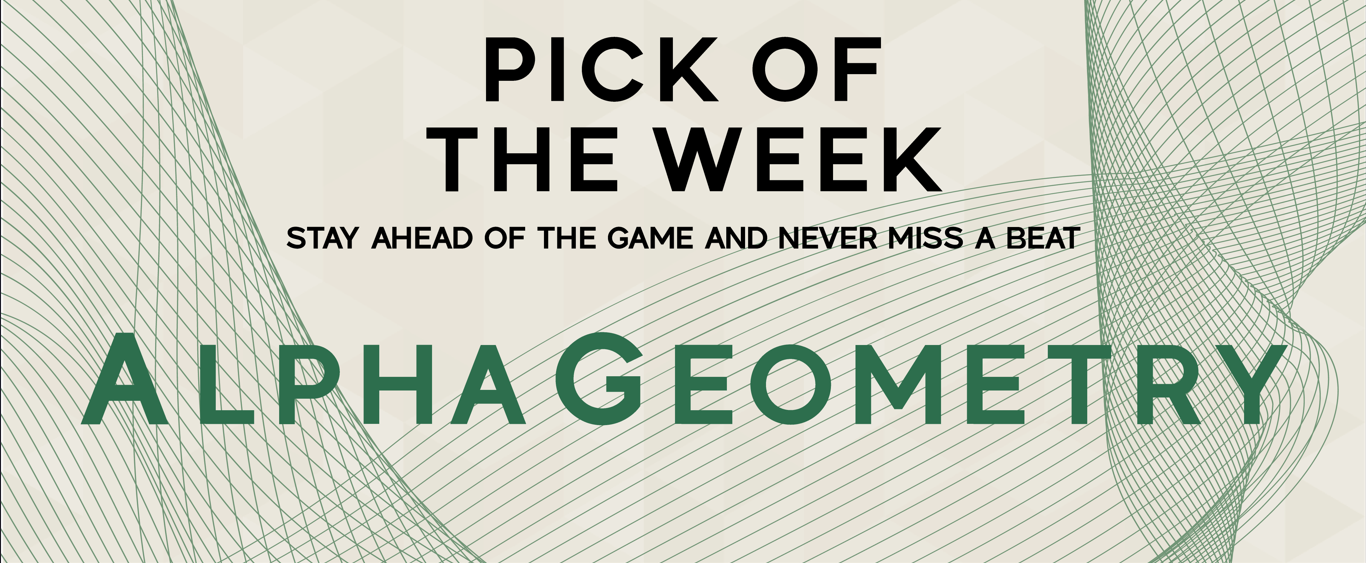


Google DeepMind's AlphaGeometry has made waves in the world of AI, achieving a remarkable feat: solving geometry problems at the level of an International Mathematical Olympiad (IMO) gold medalist. This accomplishment is particularly impressive considering the complexity and multifaceted nature of IMO geometry problems, demanding both visual and intricate mathematical reasoning abilities.
The secret behind AlphaGeometry's success lies in its innovative pairing of two distinct AI architectures: a neural language model and a symbolic deduction engine. The neural language model acts as a creative spark, rapidly generating potential solutions and geometric constructs that might be relevant to the problem at hand. However, it lacks the rigor and detailed reasoning necessary to guarantee the validity of these suggestions. This is where the symbolic deduction engine steps in. Grounded in formal logic and established rules, it methodically analyzes these proposed solutions, carefully verifying them through logical reasoning and step-by-step deductions. This dynamic duo allows AlphaGeometry to navigate the intricacies of geometric theorems with a balance of speed and precision, effectively combining the strengths of both intuitive leaps and methodical analysis.
AlphaGeometry's prowess has been demonstrably showcased in various tests. When pitted against other AI solvers, including search-based methods, it emerged as the undisputed champion. In a benchmark test involving a set of challenging geometry problems, AlphaGeometry tackled a remarkable 25 problems, significantly surpassing the previous best of 10 and even outperforming a strong competitor that combined algebraic reasoning with human-crafted strategies. Notably, it achieved this feat while utilizing fewer computational resources, highlighting its efficiency. This impressive performance can be attributed to the potent combination of its core symbolic deduction engine, an advanced algebraic deduction component, and the insightful contributions of the language model. While the algebraic component alone solved 14 problems, the language model's ability to identify auxiliary constructions unlocked solutions for an additional 11, propelling AlphaGeometry to its top position.
Furthermore, AlphaGeometry's robustness shines even under resource constraints. Even with limited training data or reduced search budgets, it maintained its state-of-the-art performance, solving a remarkable 21 problems in both scenarios. In an expanded test set encompassing 231 geometry problems, its dominance continued, successfully tackling a staggering 98.7% of them, marking a significant leap compared to the capabilities of other methods. Beyond impressive problem-solving volume, AlphaGeometry even tackled notoriously challenging problems, including those from the 2000 and 2015 IMO, considered difficult even for seasoned human contestants. In a particularly noteworthy instance, its analysis of a 2004 IMO problem led to the discovery of a more general version of the theorem, showcasing its deep understanding of geometry and its ability to approach problems with innovative solutions.
While AlphaGeometry has limitations, such as its tendency to rely on a more basic toolkit for proving theorems compared to human methods, its achievements represent a significant milestone in the field of AI. Its success in tackling complex mathematical problems previously considered outside the grasp of machines opens doors to exciting possibilities for the future, paving the way for further advancements in AI's problem-solving capabilities and its potential to contribute to diverse fields beyond mathematics.